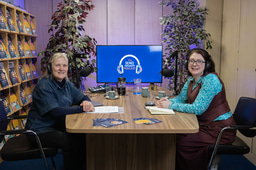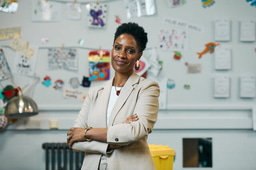The Transformative Power of Art for Students With SEND

Too many young people with SEND find it hard to develop confidence and social skills at school. Academic work is frequently a struggle, with the vast majority of SEND students not progressing to higher education. But art can be a tremendously powerful tool for unlocking these students’ potential.
Last year, Pinc College helped more than 150 16-25-year olds engage with education, often for the first time, and gain qualifications up to A Level. We developed their personal strengths and communication skills to make them ready for adult life. We did this through a curriculum focused on art and design, studied in galleries, museums and other cultural institutions. It’s an approach that can be adapted and used by other SEND educators and mainstream schools to tremendous effect.
Art doesn’t need words. Many students with SEND experience heightened emotions and can find it hard to articulate their feelings verbally. Art provides a non-verbal medium to allow them to express themselves freely. Whether it be through painting, drawing or sculpture, they can communicate thoughts, emotions, and ideas that they may otherwise be unable to share. This helps their teachers and those around them to understand them better. It also increases feeling of empowerment and self-esteem for the student. It supports their emotional regulation and aids in the development of coping strategies that can be used across all aspects of their lives.
Working on an art project also creates positive opportunities for collaborative working. SEND students often find it hard to interact with others and can feel anxious when in certain social situations, including group work in classrooms. But when creating an art piece with others they tend to feel less anxious, they open up in conversations and their confidence builds.
The delicate brush strokes of a portrait, say, or assembling the tiny parts of a model are activities that require precise hand-eye coordination and the use of fine motor skills. For students with SEND, who may face challenges in this area, practicing these skills through art and design can promote both physical and cognitive development.
Pinc courses are held in affiliated museums art galleries across Yorkshire, the Midlands and the North West, such as Salford Art Gallery, Aston Hall, Birmingham and the Yorkshire Museum in York. These are tremendous learning environments for SEND students, and other schools and colleges should look do something with cultural institutions in their area.
It creates links with local artists and creative groups, and a shared sense of art appreciation can help students develop a feeling of belonging in their wider community. Students with SEND generally feel far safer to work and share their ideas and opinions in the comfortable, calm environment of a museum, than they might in a noisy, crowded classroom.
Exhibiting artwork in public cultural spaces can give students a huge sense of achievement, and contributes to positive self-image and developing a sense of identity. Collaborating with cultural spaces such as galleries and museums also opens up opportunities for enhanced careers education and progression. Links can be explored and developed whilst studying, helping students with SEND gain a wider knowledge of potential job pathways within the cultural industry.
The wide range of styles, themes, and mediums that art offers make it a naturally inclusive platform that celebrates individual differences and strengths in a multisensory way. For even the most disengaged SEND students it can be the way to reconnect them with education and a fulfilling future.
About Karen:
I am a Whole College SEND Lead at Pinc College, the only specialist arts college for neurodivergent students in the UK. Established in 2016, it operates across the North West, Midlands and Yorkshire.





Please sign in or register for FREE
If you are a registered user on SEND Network, please sign in